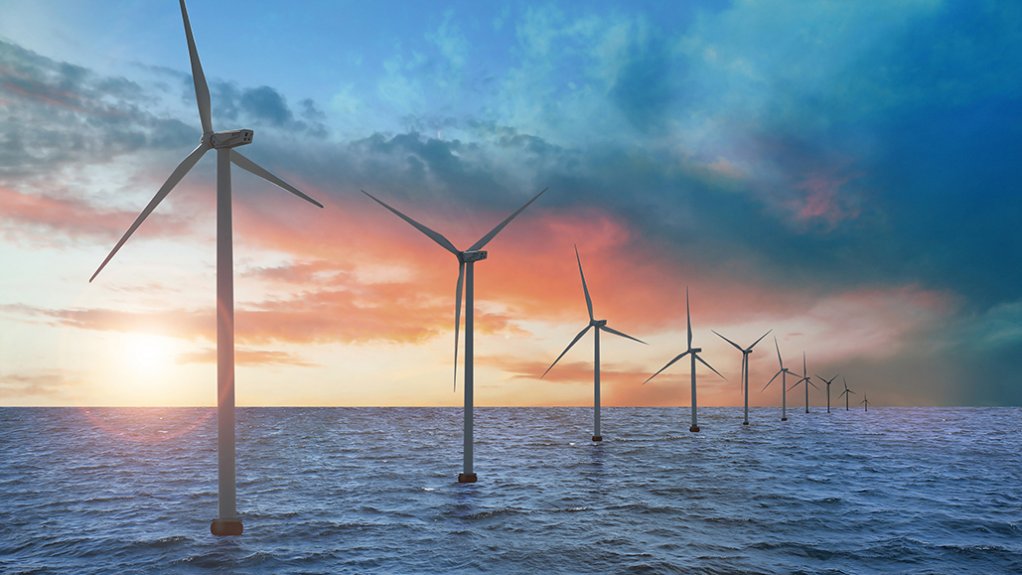Offshore wind energy has significant potential to provide a consistent source of renewable energy and create jobs in South Africa. While there are challenges to overcome, such as grid upgrades and maintenance costs, the benefits of offshore wind make it a promising solution to the country’s energy needs, says energy consultant Harmattan Renewables director Chanda Nxumalo.
She explains that the World Bank estimates that there are about 49 GW of potential for fixed offshore turbines and about 852 GW of potential for floating turbines. This translates to about 900 GW of potential energy capacity.
According to the Integrated Resources Plan 2019, South Africa requires about 78 GW of energy capacity by 2030. Therefore, offshore wind is a promising renewable source to explore as part of the ongoing transition to clean energy.
The latest models of offshore wind turbines are much larger than onshore turbines, with such turbines generating from 10 MW and 15 MW of energy, in comparison to current generation of onshore wind turbines of 5 MW to 6 MW, Nxumalo explains.
As a result, offshore wind power requires fewer turbines to generate more energy, making offshore wind a cost-effective solution in the long term.
Additionally, offshore wind energy is less intermittent than other renewable-energy sources, providing a consistent source of renewable energy.
“There’s a more consistent profile. There’s no interruptions from anything, as the wind is blowing across the ocean,” she adds.
Offshore wind farms also have a much smaller impact on land use, compared with that of onshore wind farms, while offshore wind can also help to avoid conflicts associated with environmental concerns such as impacting on wildlife.
Land that could be used for agriculture or other uses is also not sacrificed, Nxumalo says.
She emphasises that the environmental impacts of any offshore wind farms must be assessed and mitigated, but believes that the construction of an offshore wind farm presents a more environment-friendly option for generating wind power.
The offshore wind industry also has the potential to create jobs and boost economic growth locally and nationally.
Regions with established offshore wind industries have reaped the rewards of significant economic benefits, such as the creation of a local supply chain with the local sourcing of materials and equipment for offshore wind farms, and job creation during construction and operations and maintenance.
Nxumalo adds that the transition to renewable energy will likely include a loss of jobs in the coal sector, but suggests that these workers could be trained to instead work with alternative energy sources such as offshore energy.
However, while offshore wind offers significant benefits, she notes that there are also challenges that must be addressed.
The existing power grid and associated infrastructure needs to be upgraded to accommodate the new energy source, as the existing grid was not built to move generation from the coast towards the mainland.
Another significant challenge is that the logistics required to build, operate and maintain offshore turbines are complex and expensive.
Offshore wind is also relatively expensive, compared to other potential energy sources. However, large-scale offshore wind farms spread the capital expenditure cost across a larger capacity of offshore generation.
As a result, the levelised cost of electricity of large-scale offshore wind farms is now on par with coal generation, Nxumalo concludes.
Edited by: Nadine James
Features Deputy Editor
EMAIL THIS ARTICLE SAVE THIS ARTICLE
ARTICLE ENQUIRY
To subscribe email subscriptions@creamermedia.co.za or click here
To advertise email advertising@creamermedia.co.za or click here















